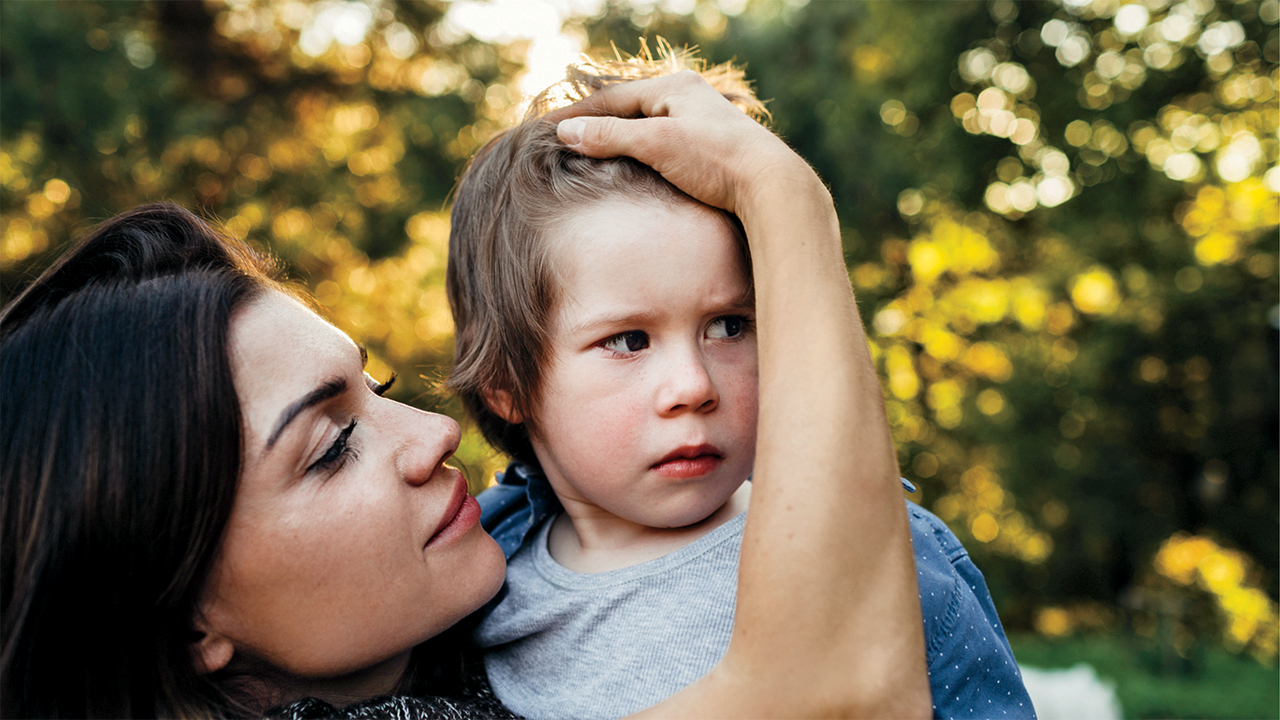Is it OK to interfere in your kid’s problematic friendships? Here’s how to navigate this tricky situation.
When Alison Simpson’s* son, Marshall, began junior kindergarten, she was proud of his efforts to make friends with Joe, a quiet and withdrawn kid. Marshall helped bring him out of his shell, and the teachers and Simpson encouraged the relationship.
Soon after, Marshall began talking about how Joe told him scary things about Pennywise (the clown from the horror movie It) and Bendy and the Ink Machine (a video game for ages 12+). Marshall began saying violent things at home as “jokes.” At school, Joe began acting out in class, unable to control his anger, sometimes being aggressive to teachers and peers. Simpson and her husband became concerned—had they encouraged their son to befriend a kid who was clearly troubled? How could they backtrack and ask Marshall to stay away from his “best friend”?
When your kid makes a friend who you believe is a bad influence, your protective instincts can make it hard to see a clear path forward. Many parents discover that the cocoon of control you have over certain aspects of your kid’s life starts to crumble once they begin school and have more freedom. The first thing to remember is that you cannot choose whom your kid connects with; you can only encourage them to make good decisions and give them tools to deal with tough situations.
Support their choices
The allure of the alpha kid is strong for any child, especially those who may be more sensitive. Just like adults, kids with strong personalities can be charming. “Kids who are a little softer often have urges to be loud or disruptive, so when they see other kids doing that, it’s fascinating and they’re drawn to them,” says Mercedes Samudio, a licensed clinical social worker and author of Shame-Proof Parenting. “Kids are naturally empathetic; they intuitively want to connect to other kids. They don’t see a ‘troublemaker’ like adults do; they just see another kid having fun. They may admire certain traits they believe they don’t possess.”
It is important to support your kid’s choices as long as they’re not being harmed. “Ask them, Why do you like this child? Do you think the child is kind or a good sharer? Basically ask them about traits that you would hope your child would start to look for in a friend,” says Samudio. Leading the conversation this way allows your kid the space to express themselves and teaches them that these are qualities that make for a great friend. When you offer your support, rather than your displeasure, your child will learn that their choices have weight, that you respect their ability to be autonomous.
Validate their feelings
Once you understand the allure, ask your child how their friend makes them feel. “Children may have conflicting feelings about friendships in their life,” says Helena Goodwill, a Toronto-based child psychologist. “As a parent, it is important to acknowledge the mixed feelings. Understanding these contrasting feelings will help your kid understand their own personal boundaries.”
If they feel bad when their friend is rude to the teacher, for example, that will help them understand that rudeness is something they aren’t OK with. “Help them come up with a solution if their friend oversteps—for example, I can stand up for someone else, say something to my friend about it, remove myself from the situation or give myself a break,” she continues. “These are the strategies that I would encourage first.”
Reinforce family boundaries
Boundaries will also help when your child wants to know why they cannot do something or behave like their friend. Chat about your family’s boundaries without placing blame on other parents or guardians. “Explore the idea that other families make choices for their family, and that’s their business,” recommends Samudio. “Our family believes XYZ, or our family doesn’t do ABC, and it’s OK to be different, even if we don’t always understand it.”
For Simpson, keeping close contact with the teachers was helpful. While Marshall and Joe remain friends, Marshall naturally connected with a new BFF with whom he shared more interests. For grade one, Simpson asked that the boys be placed in separate classes, a request many principals will try to accommodate.
When the pandemic hit last March, the physical separation also helped put Joe’s behaviour into perspective for Marshall. “Marshall actually told me unprompted that although he hoped Joe would be in his grade two class, he also knew that it might be better to have space,” says Simpson. “He said, ‘I think I’m growing up!’ Honestly, it made me tear up with pride.”
*Names have been changed
